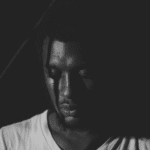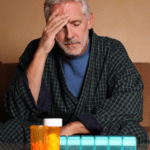Major Depressive Disorder: Symptoms, Causes & Treatment
Depression, also known as clinical depression or major depressive disorder, is a mood disorder characterized by persistent feelings of sadness, loss, or anger. It can lead to a depressive episode that interferes with daily activities, affecting one’s mental, emotional, and physical well-being. Severe depression may require evidence-based treatments to help manage the symptoms effectively.
Clinical depression, also known as major depressive disorder, is a mood disorder that leads to ongoing feelings of sadness, loss, or anger. These emotions can result in depressive episodes that disrupt daily life. If untreated, severe depression can significantly affect mental and physical health, but there are effective treatments for depression that can help individuals regain control over their lives.
Unlike clinical depression or major depressive disorder, which involves persistent sadness without a specific cause, grief is typically tied to a particular event, like losing a loved one. While grief can involve deep emotional pain, it often includes positive memories, distinguishing it from the overwhelming and persistent sadness seen in depressive disorders.
Key Takeaways
- Major Depressive Disorder (MDD) is a common, serious form of depression with persistent low mood and loss of interest.
- Symptoms include sadness, fatigue, changes in sleep or appetite, and difficulty concentrating.
- Causes include brain chemistry imbalances, genetics, hormonal and environmental factors.
- Treatment often involves talk therapy, medication, and lifestyle support.
- Mission Connection offers evidence‑based care and personalized support for adults with MDD.
Table of Contents
Symptoms of Depression
General Symptoms of Depression
- Feeling persistently sad, hopeless, or anxious
- Experiencing fatigue, difficulty concentrating, or noticeable changes in appetite and sleep
- Physical symptoms such as headaches or digestive problems
- Having suicidal thoughts or tendencies toward self-harm
Symptoms of Depression by Demographics
- Males: Symptoms may include anger, irritability, reckless behavior, or increased substance use.
- Females: Common symptoms include persistent sadness, mood swings, and sleep disturbances.
- Teens and Children: Depression in younger individuals often presents as irritability, academic difficulties, and avoidance of social situations.
Causes of Depression
Brain Chemistry: Chemical imbalances in the brain are one of the primary causes of depression. These imbalances can disrupt normal brain function, leading to mood disturbances and contributing to the development of major depressive disorder. Understanding how brain chemistry impacts mental health can help explain what causes depression in many individuals.
Hormonal Changes:
Shifts in hormones, especially during pregnancy, menopause, or menstrual cycles, can be significant causes of depression in women. These hormonal changes can lead to mood swings and increase the risk of developing major depressive disorder. Understanding how hormonal imbalances can impact mental health is key to recognizing what causes depression in certain individuals.
Family History and Genetics:
A family history of depression or major depressive disorder can increase the likelihood of developing the condition. Genetics play a crucial role in determining one's vulnerability to mood disorders. If a close relative has experienced depression, this can be one of the key causes of depression. Research continues to explore what causes depression from a genetic perspective, helping to better understand hereditary risks.
Medical Conditions:
Chronic illnesses, persistent insomnia, and ongoing physical pain are all potential causes of depression. Individuals dealing with long-term health issues often face increased risk for developing major depressive disorder. These medical conditions can lead to both physical and emotional stress, which are significant factors in understanding what causes depression and how it can be triggered by ongoing health challenges.
Substance Use:
Misuse of alcohol or drugs can be a contributing factor to major depressive disorder and may worsen symptoms of depression. Substance use can lead to chemical imbalances and further complicate emotional well-being, making it both a trigger and an exacerbating factor in what causes depression. Addressing substance use is crucial in managing and treating depression effectively.
Types of Depression
Major Depressive Disorder is the most common and severe form of depression. It is characterized by persistent feelings of sadness, hopelessness, and a loss of interest in activities once enjoyed. Individuals with MDD may experience physical symptoms like fatigue, changes in appetite, and disrupted sleep patterns. This condition can significantly interfere with daily life and requires comprehensive treatment. Understanding types of depressive disorders like MDD is crucial in finding the right path to recovery.
Persistent Depressive Disorder (PDD), also known as dysthymia, is a chronic form of depression that lasts for at least two years. Individuals with PDD may experience less severe symptoms than major depressive disorder, but the long-lasting nature of the condition can still significantly affect daily life. Recognizing types of depressive disorders like PDD is important in understanding long-term mental health challenges.
Bipolar depression is part of bipolar disorder, a condition characterized by extreme mood swings. Individuals experience periods of depression followed by episodes of mania or hypomania. During depressive phases, symptoms can mirror those of major depressive disorder, including feelings of sadness, fatigue, and difficulty concentrating. Recognizing types of depression, such as bipolar depression, is essential for accurate diagnosis and effective treatment.
Prenatal and postpartum depression are types of depression that occur during or after pregnancy. Hormonal changes, physical strain, and emotional stress contribute to these conditions. Women experiencing postpartum depression may feel sadness, anxiety, and detachment from their newborn. Recognizing these types of depression is crucial for early intervention and support during a critical time for both mother and child.
Seasonal Affective Disorder (SAD) is a type of depression that occurs during specific seasons, most commonly in the winter months when daylight is limited. Symptoms can include fatigue, mood swings, and difficulty concentrating, similar to major depressive disorder. Understanding types of depression like SAD is essential for those who experience mood changes related to seasonal shifts.
Depression and Related Health Conditions
Depression, or major depressive disorder, is a common mental health condition characterized by persistent sadness, hopelessness, and a loss of interest in daily activities. It can occur alongside other mental health disorders like anxiety, PTSD, or substance use disorders. Recognizing types of depression and their symptoms is key to finding effective treatment options. With early intervention, individuals can manage their condition and regain control of their mental well-being.

Depression with Anxiety
Depression and anxiety frequently overlap, making diagnosis and treatment more complex. Both conditions share symptoms like fatigue, restlessness, and difficulty concentrating. Understanding the co-occurrence of these disorders is essential for developing an effective treatment for depression and anxiety that addresses both conditions simultaneously. Early and accurate diagnosis can improve long-term recovery outcomes.
Depression and OCD
OCD and depression often coexist, with the overwhelming nature of obsessive thoughts potentially leading to depression. The constant cycle of obsessions and compulsions can cause significant distress, making it harder to manage daily life. Understanding how OCD causes depression is key to finding the right medication for OCD and depression to support overall mental health.
Depression with Psychosis
Depression psychosis occurs when severe major depressive disorder is accompanied by hallucinations or delusions. This form of depression and psychosis often requires specialized treatment to manage both the mood disorder and psychotic symptoms effectively.
Diagnosing Depression
If you’re experiencing persistent sadness, hopelessness, or changes in daily functioning, it’s important to seek a proper medical diagnosis for depression. Healthcare providers assess how depression is diagnosed through mental health evaluations and symptom checklists. Early diagnosis of clinical depression or major depressive disorder ensures timely intervention and access to treatment options. Testing typically involves interviews and questionnaires to determine how clinical depression is diagnosed and the severity of the condition.
Treatment for Depression
Depression treatment involves a combination of medical approaches and lifestyle changes. While some individuals may benefit from a single treatment for depression, others might require a mix of therapies. Common treatments for depression include medication, therapy, and self-care strategies aimed at managing symptoms. Understanding how to treat depression is essential for finding the most effective approach to recovery.
Medication for Depression
Depression medication plays a crucial role in managing symptoms for many individuals. Common antidepressant medications include SSRIs, SNRIs, NDRIs, and mood stabilizers, which help balance brain chemicals to improve mood and well-being. These medicines for depression are often prescribed based on individual needs and response. If you’re exploring options, it’s important to discuss with a healthcare provider which antidepressant may be right for you
Targeted Therapy for Depression
Various types of therapy for depression are effective in treating the condition. Cognitive Behavioral Therapy (CBT) and Dialectical Behavior Therapy (DBT) help individuals manage negative thought patterns. Psychotherapy for depression and talk therapy provide support by addressing emotional challenges. For many, a combination of therapy for major depressive disorder and lifestyle changes can significantly improve mental health.
In addition to therapy for depression, making lifestyle changes can be an effective way to manage symptoms. Regular exercise, a healthy diet, and proper stress management are key natural remedies for depression. These approaches can complement medical treatment, providing a holistic approach to improving mental health. Incorporating these natural remedies for depression into your routine can enhance overall well-being. Early intervention is crucial in managing major depressive disorder and preventing severe symptoms. Maintaining a strong support system, managing chronic conditions, and seeking professional help when needed are effective preventive measures for depression. Proactive strategies can help reduce the risk of worsening symptoms and improve long-term mental health outcomes.
Clinical Depression Treatment Centers
Inpatient, Outpatient, and IOP Treatment
Inpatient depression treatment involves 24/7 care in a controlled environment, ideal for individuals needing intensive support. Outpatient treatment for depression allows individuals to live at home while attending therapy sessions, offering more flexibility. Intensive Outpatient Programs (IOP) are a middle ground, providing structured care without full-time residence. Each option offers unique benefits depending on the severity of the condition and the individual’s needs. Selecting the right treatment for depression depends on factors such as daily responsibilities and the level of care required for major depression treatment.
Our Depression Treatment Program
At Mission Connection, our outpatient program provides flexible, personalized care for individuals seeking effective ways to manage depression. Ready to learn more? Contact us today to explore how we treat depression and how we can support your journey to recovery.
Major Depressive Disorder FAQs
MDD — also called clinical depression — is a mental health condition marked by a persistently low mood and loss of interest in activities that lasts at least two weeks.
Symptoms include ongoing sadness, fatigue, disrupted sleep or appetite, difficulty concentrating, and feeling hopeless or unmotivated.
Causes can include brain chemistry imbalances, genetic predisposition, chronic health issues, hormonal changes, and environmental stressors.
Treatment often includes psychotherapy (like CBT), medication, lifestyle changes, and support that can improve symptoms and functioning.
Mission Connection provides compassionate, individualized outpatient care for Major Depressive Disorder, using evidence‑based therapy and support to help adults manage symptoms and regain well‑being.
- Signs of Treatment-Resistant Depression
- Signs of Depression Relapse
- Depression-Related Sleep Issues
- Depression Symptom Checklist
- ICD-10 Criteria for Depression
- Major Depressive Disorder (MDD) Symptoms
- Depression Symptoms
- Depression Self-Test
- PHQ-9 Depression Test
- Warning Signs of Depression
- Types of Depression
- Best Therapies for Depression
- Talk Therapy for Depression
- Telehealth for Depression
- Personalized Therapy for Depression
- Holistic Treatment for Depression
- Online Therapy for Depression
- Effective Treatments for Depression
- Medications for Depression
- Treatment-Resistant Depression Options
- Depression Relapse Prevention






